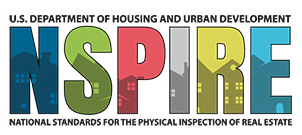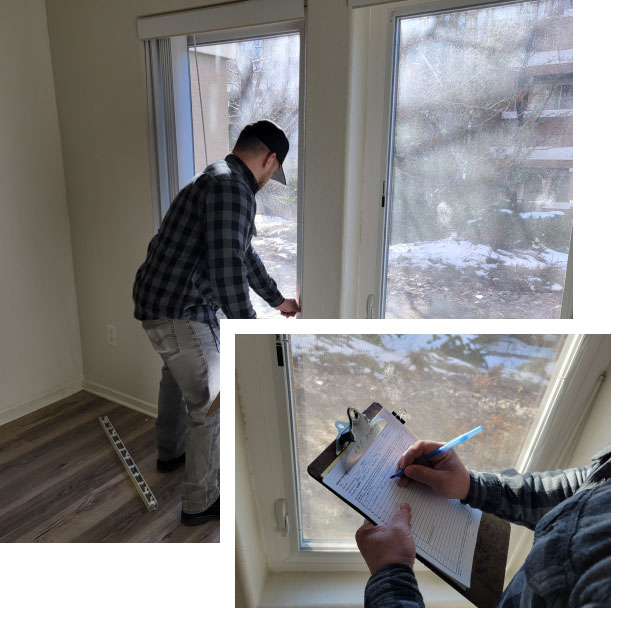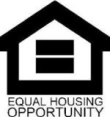For Landlords
Many RHA programs work because we have private landlord partners. Whether you own a small duplex or manage an entire apartment complex, we have programs that support you as you rent to low-income Nevadans who need a safe, secure place to call home.
With specialty vouchers available to veterans and foster youth, in addition to traditional vouchers for seniors and families, the RHA values landlords who serve our shared clientele.
Upcoming Landlord Briefing
1:30pm on the last Wednesday of every month
Microsoft Teams Meeting
Upcoming NSPIRE for Landlords Webinar - POSTPONED
Wednesday, February 26th from 11:00am - 1:00pm. Click here to join.
How can I get Involved?
Learn more about landlord protections when you rent through RHA by watching this video, downloading the new landlord packet or attending our monthly New Landlord Briefing. These briefings are held on the last Wednesday of each month at 1:30 p.m. Sign up by emailing landlords@renoha.org.
Our New Landlord Packet includes:
- A sample of the HAP contract and the Request for Tenancy Approval form
- Printouts of the New Landlord Briefing and Landlord Fair slideshows
- Housing Choice Voucher fact sheets
- Several important forms (such as the Request for Change in Contract Rent form)
- Important RHA contact information
Landlord Incentive Program
Property managers and landlords who participate with RHA receive rent payment stability, regular inspections to protect their property, direct payment into their bank accounts, and other protections beyond the day of move-out.
You maintain a contract with each tenant, and also with us, so you have the same rights afforded any of your non-voucher leases. We provide criminal background checks and guaranteed payments, which you won’t find elsewhere.
The RHA also has a landlord liaison who works directly with you, so you have personalized service and a one-stop shop.
List your rental free here: https://nvhousingsearch.org/
The Landlord Incentive Program protects you:
- When a tenant passes away while still under lease
- When an eviction for cause is filed through the courts and executed
- When a tenant vacates without providing proper notice
- When the RHA terminates housing assistance for violating program rules
- When a tenant causes damage to the unit in excess of the security deposit

Effective October 1, 2024, RHA will begin implementing HUD’s new inspection protocol: National Standards for the Inspection of Real Estate (NSPIRE). Similar to the previous Housing Quality Standards (HQS), NSPIRE establishes the minimum criteria necessary for the health and safety of program participants, and all voucher-subsidized units must meet these performance and acceptability standards in order to participate in the program. NSPIRE aims to increase inspection consistency and accuracy through clearly defined inspection standards and protocols, placing the focus on the health and safety of the resident instead of minor cosmetic defects.
HUD will be hosting a webinar, NSPIRE for Landlords, on Wednesday, February 26th from 11:00 am - 1:00 pm. Click here to join the webinar or go to HUD's HCV Program and Trainings website here and scroll down to February 26th, then click Join Here.

NSPIRE inspections are conducted by RHA staff to ensure that units meet HUD’s minimum performance and acceptability criteria.
When do NSPIRE inspections occur?
NSPIRE inspections come in three different varieties. Initial Inspections occur when a voucher holder submits a Request for Tenancy Approval (RFTA) for a specific housing unit. Biennial Inspections occur every other year on housing units that are currently under lease by a voucher holder. Special Inspections may be requested by either the tenant or the landlord and fall outside of the biennial inspection schedule.
What do NSPIRE inspectors look for during an inspection?
NSPIRE clearly defines 3 inspectable areas: Unit, Inside, and Outside. Unit (bold) refers to the interior components of the individual dwelling – where the resident lives. Inside (bold) refers to the common areas and building systems with the building interior (but which are not inside a unit). This could be laundry facilities, workout rooms, etc. Outside (bold) refers to the building site, exterior components, and building systems located outside the building or unit. This includes things like playgrounds, sidewalks, and air-conditioning units.
Each NSPIRE standard lists the areas or items within each inspectable location that the standard applies to, and a deficiency may have different potential impacts on resident health and safety depending on where it is found. For example, an inoperable toilet in a unit may have a different classification than on in a common area.
For more information on NSPIRE and to view the standards, click here.
Have questions or need a particular form?
Contact us using this form and the Reno Housing Authority will respond as soon as possible.
Contact E-mail:
landlords@renoha.org
You can find all of the Landlord Forms here:
